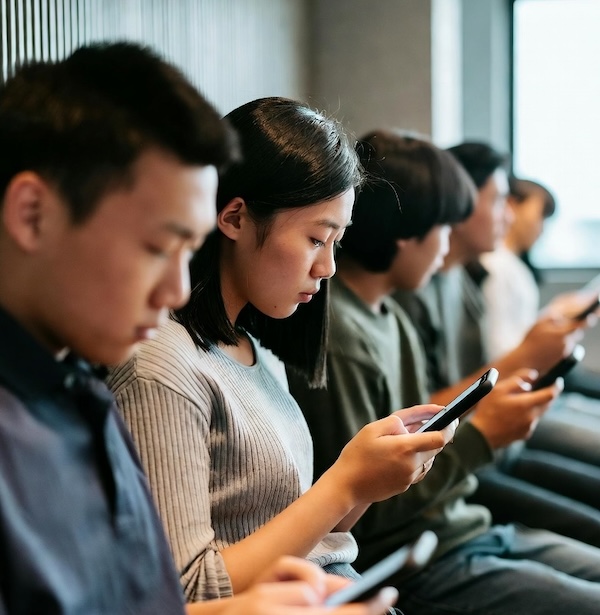Can Social Media Improve Your Mental Health? - Page 2
By Terry Bu | 04 Nov, 2025
Whether your use of social media leads to depression and suicidal thoughts or elevates your engagement and security depends on how you use it.
The overuse of social media in our society seems to be the main cause of depression among those in my age group," noted a teenage boy from the study. "People seem to let themselves be affected by the opinions of people they don’t know, and it wreaks havoc upon people’s states of mind."
Jenny Wang is an activist who has used social media to help remove the stigma of seeking mental health help.
It's worth noting that TikTok usage has also jumped significantly among adults aged 18 to 29, to 62%, up from 48% last year. TikTok adoption rates are climbing among other age groups, as 39% of adults ages 30-49 also reported using the app last year, up from 22% a couple of years earlier.
Not Inherently Harmful
Emerging recently from social media discourse is the view that using social media apps isn't inherently harmful and can even be beneficial to mental health, citing emotional connections, shared experiences and finding supportive communities as possible outcomes. This more positive outlook finds support in some surveys and qualitative studies.
An example is a 2024 Brock University study on Asian-American emotional well-being in the post COVID-19 era titled “The Dual Impact of Social Media on Asian Americans’ Racial Identity and Resilience During the COVID-19 Pandemic.”
“Asian Americans share similar experiences of emotional and mental distress on big social media groups due to the level of anonymity and emotional detachment these spaces provide.”[9] Social media also has the power to reduce stigma by enabling sharing of personal stories anonymously with less immediate social risk.
Several study participants also described feeling less alone when they saw other Asian American friends participating in the #StopAsianHate movement. Interestingly, participants felt a sense of safety and acceptance when non-Asians joined the movement by liking and sharing pro-Asian posts. This let participants identify allies within their social circles and feel a sense of safety and acceptance from the support of other racial groups.
A Finnish research study from Aalta University published in 2023 called “Mental Health Coping Stories on Social Media” looked at the Papageno effect, the positive effect that social media can have in preventing and mitigating suicidal ideation and behaviors.[10] The name Papageno comes from an 18th century Opera character who contemplates suicide until other characters show him a different way to resolve his problems). The study found that “engaging with coping stories [on social media] leads to decreased stress and depression, and improved expressive writing, diversity, and interactivity.”
Benefits of Active vs Passive Social Media Use
The third insight from studies suggests that how social media is used is much more important for mental health than whether one uses social media. A 2020 PubMed study in the aftermath of the Covid-19 pandemic with the attendant increase in discrimination. The study focused on 242 Asians/Asian-Americans with an average age of 32 and found, “Social media posting/commenting was related to better subjective well-being through lower worry about discrimination [while passive] social media browsing was associated with poorer subjective well-being through more worry about discrimination.”
This data suggests that social media can provide support if it's used to comment on and create new content to connect with others suffering similar experiences. At the same time, passive users are exposed to even more stress and discrimination if they are merely browsing and scrolling through content without intentional, purposeful involvement.
More recent research confirms that problematic smartphone use too has a significant correlation with major depressive disorder. Problematic smartphone patterns are defined as compulsive checking or interference with daily life, and seem to matter more than raw screen time.

Asian American Success Stories
- The 130 Most Inspiring Asian Americans of All Time
- 12 Most Brilliant Asian Americans
- Greatest Asian American War Heroes
- Asian American Digital Pioneers
- New Asian American Imagemakers
- Asian American Innovators
- The 20 Most Inspiring Asian Sports Stars
- 5 Most Daring Asian Americans
- Surprising Superstars
- TV’s Hottest Asians
- 100 Greatest Asian American Entrepreneurs
- Asian American Wonder Women
- Greatest Asian American Rags-to-Riches Stories
- Notable Asian American Professionals

